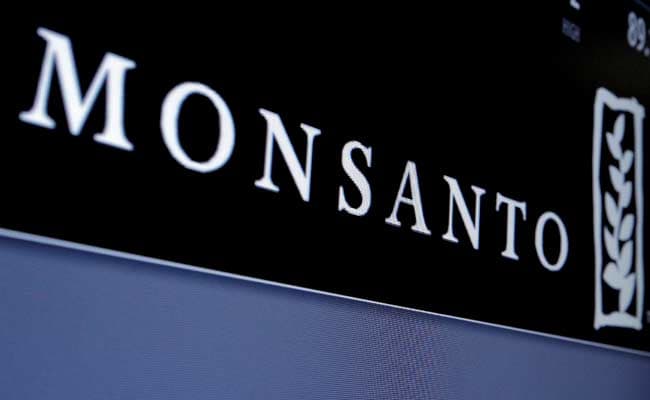Monsanto wins crucial India casec
January 10, 2019 | Expert Insights

The Supreme Court ruled on Tuesday that Monsanto can claim patents on its genetically modified (GM) cotton seeds, a victory for the U.S. company that is expected to encourage biotechnology firms to step up investment in the country.
Background
Monsanto is a multinational agricultural and biotechnology corporation headquartered in Creve Coeur, Missouri. Monsanto was founded by John F. Queeny in 1901, as an artificial flavouring manufacturer. Monsanto established its first agricultural division in the 1960s and was among the first to conduct field trials of genetically modified crops. By 1997, it had introduced new biotech canola, cotton, and corn. Today, it is primarily known for its ventures in biotechnology and agriculture. The Company operates through two division: Seeds and Genomics (which produces GM and hybrid seeds as well as other biotechnology products), and Agricultural Productivity (which produces herbicides, and digital agriculture tools.)
Monsanto claims to “deliver products that help farmers grow food sustainably.” However, the company has faced numerous controversies. It has manufactured numerous products that have since been found to be highly harmful including DDT, PCBs, and Agent Orange, and certain growth hormones. Agent Orange was a herbicide widely used by US forces in the Vietnam war and has been linked to health problems such as cancer.
Monsanto has also been criticised for its parenting policy on seeds that draw from indigenous varieties in countries such as India.
Analysis
The decision on appeal overturns an earlier ruling by the Delhi High Court that Monsanto - the world’s biggest seed maker, which has been bought by Germany’s Bayer AG - could not claim patents on GM cotton seeds.
The outcome is positive for foreign agricultural companies such as Bayer, Dupont Pioneer and Syngenta which have been concerned they could lose patents on GM crops in India.
The ruling was criticised by a nationalist group, which has links to the ruling Bharatiya Janata Party (BJP) and which favours non-GM technologies and “India first” economic policies, but it was welcomed by one of India’s main farmers’ associations.
New Delhi approved Monsanto’s GM cottonseed trait, the only lab-altered crop allowed in India, in 2003 and an upgraded variety in 2006, helping transform India into the world’s top cotton producer and second-largest exporter of the fibre.
Monsanto’s GM cotton seed technology went on to dominate 90 per cent of India’s cotton acreage. But for the past few years, Monsanto has been at loggerheads with Indian seed company Nuziveedu Seeds Ltd (NSL) over patents, drawing in the Indian and U.S. governments.
The Delhi High Court ruling came after NSL argued that India’s Patent Act does not allow Monsanto any patent cover for its genetically modified (GM) cotton seeds.
Mahyco Monsanto Biotech (India) (MMB), a joint venture between Monsanto and India’s Maharashtra Hybrid Seeds Co (Mahyco), sells GM cotton seeds under license to more than 40 Indian seed companies, which in turn sell the product to retailers.
Monsanto’s Indian joint venture had terminated its contract with NSL in 2015 after a royalty payment dispute, escalating tensions over seed technology.
The Supreme Court on Tuesday also said the Delhi High Court would examine Monsanto’s claims that NSL infringed its intellectual property on Bt cotton seeds.
NSL said in a statement after the ruling that it stuck to its claim that India’s Patent Act does not allow Monsanto any patent cover for its GM cotton seeds and that it was also “confident of succeeding” before the Delhi court.
After the court verdict, shares of Monsanto India Ltd climbed as much as 13.4 per cent before paring most losses to close up 2.8 per cent. The nationalist group close to Prime Minister Narendra Modi’s BJP that opposes GM technology said it would seek a legislative amendment to the rules governing patents.
The government has not taken a stance on this case and a spokeswoman at the farm ministry did not immediately respond to an email seeking comment on the Supreme Court ruling. The ministry has twice slashed royalties that local seed companies pay to Monsanto in the past two years. The ministry also cut cottonseed prices.
Monsanto has also been battling a proliferation of illegal planting of its herbicide-tolerant cotton varieties. After a spate of unfavourable government orders and a tussle over royalty payments, Monsanto in 2016 withdrew an application seeking approval for its next generation of GM cotton seeds in India.
Counterpoint
The Supreme Court ruling is expected to result in more investment in India’s biotech sector. Unfortunately, the existing industry leaders such as Monsanto may use their position to initiate controversial biotech projects such as GMO foods without considering ethical or moral impacts. There is also a possibility of this court ruling to be used as a precedent for companies to rapidly expand its country operations in India without adjusting for market demands.
Assessment
Our assessment is that this landmark Supreme Court decision will encourage greater investment in the Indian biotechnology sector. We believe that Monsanto will take advantage of this new ruling and speed up its investments in critical biotech sectors like GMOs. We also feel that there may be widespread opposition based on moral and ethical reasons regarding GMO food in India.








Comments